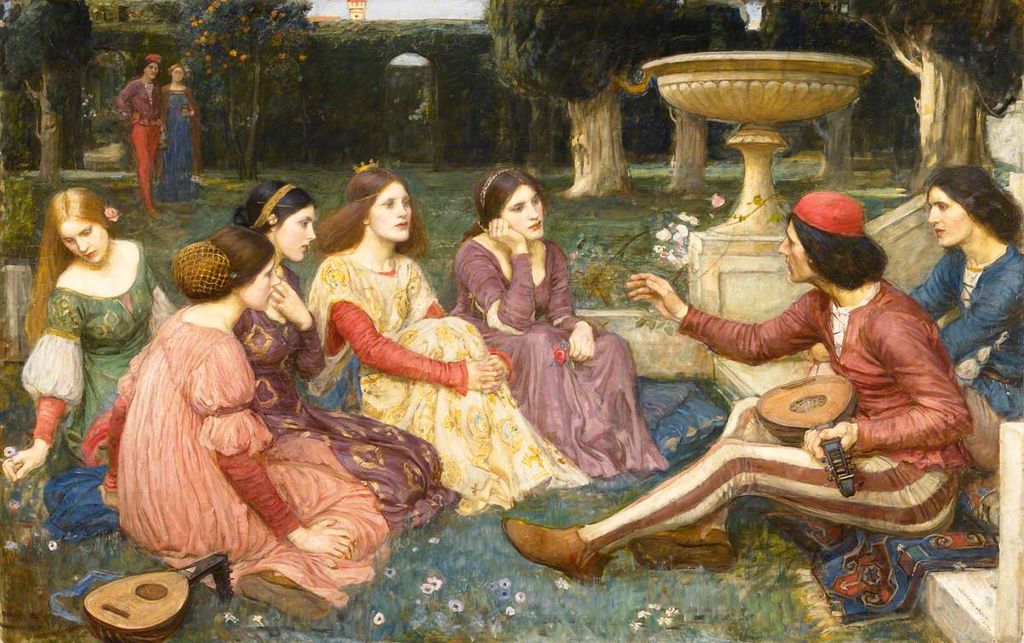In which these most unprecedented times prove to have some precedent after all, and crisis invites us to re-imagine our conditions for living.
So they gathered into groups and kept clear of everyone else, shutting themselves up in houses where no one was sick and where they could live comfortably … not speaking to anyone outside or hearing any news of the dead or sick, but enjoying music and what other pleasures they could muster. – Giovanni Boccaccio, The Decameron (trans. J. G. Nichols)
1348: As the Black Death ravages Florence, ten wealthy young people flee the city for the countryside, where they spend ten days telling stories, singing songs, napping, and flirting. This is the set-up for Giovanni Boccaccio’s Decameron, a framing narrative surrounding one hundred short stories about love, sex, trickery, and the vicissitudes of fortune.
I opened my copy of the Decameron in mid-March, as public buildings in the city shut their doors indefinitely. Having flown home from Spain via the UK a few days earlier and subsequently developed a dry cough, I was instructed to stay home and monitor my temperature, and made a plague-themed reading list to work through during what I naively hoped would be two weeks of isolation. As two weeks stretched into four, it was this framing narrative, not the stories themselves, that I kept turning back to.

Boccaccio opens with a harrowing description of the bubonic plague’s trail of destruction in Florence, including not only gruesome details of the dead and dying, but profound changes in the social fabric of the city: family members deserting each other, the breakdown of law and order, the disappearance of the labour force in the form of the servant class. Florence is a city without boundaries, where distinctions between sibling and stranger, sick and well, and rich and poor blur and then give way to abject chaos.
Even as the narrators of the Decameron try to avoid the pestilence – it’s rarely mentioned after this passage – they’re marked, or changed, by the collapse of the structures they’ve always known. (Half of the population of the city would die from the plague.) In and around their bawdy stories, we glimpse a new social order which this lost generation might dream into being; the microcosmic society they establish in exile is peaceful, leisurely, and gender-equitable.

The Decameron reads like a long-form negotiation of social and sexual mores, the kind of examination that we perform during a crisis. Boccaccio, writing in the early 1350s, muses that women were noticeably less chaste after the plague year, having dispensed with the taboo against showing their bodies to men. He explicitly critiques the customs which confined well-off women in their homes without recreation or socialization. His storytellers prize wit, quick thinking, and sexual freedom over rank and noble birth. The hypocrisy of priests (a recurring theme) is a worse moral crime for them than sleeping with a married woman.
Between chapters, on Instagram, I scrolled through the words rent strike and mutual aid networks and capitalism is the virus. The luckiest among us, in isolation at home, had time to watch the structures sold to us as natural and inevitable faltering in the face of immense – but predictable – upheaval. Like Boccaccio’s youth in retreat, we thought: there must be a better way we could do this.
On the tenth day, the youths return to Florence without much fanfare, go to church, and return to their homes. It is left for the reader to decide what they bring back with them, and what they have left behind.
